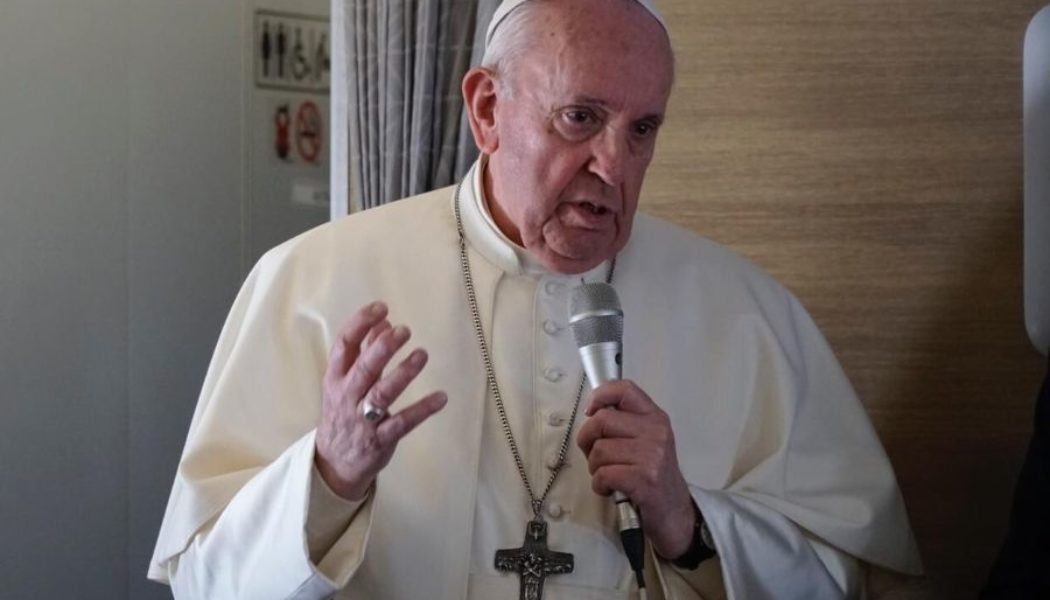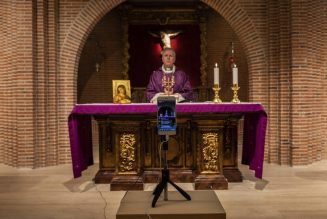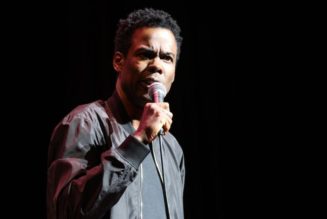
Pope Francis: I was told by someone that they wanted to do an operation. I don’t know who it was that I heard […] It was an aesthetic thing.
O’Connell: You yourself have said that we are all sinners and that the Eucharist is not a prize for the perfect, but a medicine and nourishment for the weak. As you know, in the U.S. after the last elections, but also since 2004, there has been a discussion among bishops about giving Communion to politicians who have supported pro-abortion laws and a woman’s right to choose.
And as you know, there are bishops who want to deny Communion to the president and others, there are other bishops who are against it, there are some bishops who say that the Eucharist should not be used as a weapon. What do you think about this reality and what do you recommend to the bishops? And then as a second question, have you as a bishop in all these years publicly refused the Eucharist to anyone?
Pope Francis: I have never refused the Eucharist to anyone. No one. I do not know if anyone came [to me] who was in this situation, but I never refused the Eucharist. To this day as a priest never. But never have I been conscious of having a person in front of me as you describe. That is true.
Simply, the only time I had a funny thing happen was when I went to celebrate Mass in a nursing home. And we were in the living room and I said: “Whoever wants Communion, raise your hand.” And everybody, they were elderly, raised their hands. And I gave Communion to one lady, and [afterward] she took my hand and she said, “Thank you, Father, thank you, I’m Jewish.” She took my hand. Even this one I told you about was a Jewish woman and yet, onward. The only strange thing. But the lady told me afterward.
Communion is not a prize for the perfect, think of […], Jansenism, the perfect are able to take Communion. Communion is a gift, a gift, the presence of Jesus in his Church. It is in the community. This is the theology. Then, those who are not in the community cannot take Communion — like this Jewish lady, but the Lord wanted to reward her and without my knowledge. Why [can they not take Communion]? Because they are out of the community, excommunicated, they are “excommunicated” it is called. It’s a harsh term, but what it means is they are not in the community, either because they do not belong, or they are baptized but have drifted away from some of the things.
Second, the problem of abortion. Abortion is more than an issue. Abortion is murder. Abortion, without hinting: whoever performs an abortion kills. You take any embryology textbook of those students that study in medical school. At the third week of conception, at the third, many times before the mother notices, all the organs are already there. All of them. Even the DNA. […]
It’s a human life, period. This human life must be respected. This principle is so clear. And to those who can’t understand it I would ask two questions: Is it right, is it fair, to kill a human life to solve a problem? Scientifically it is a human life. Second question: Is it right to hire a hitman to solve a problem? I said this publicly […] when I did, I said it to COPE, I have wanted to repeat it. And period. Don’t continue with strange discussions: Scientifically it’s a human life. The textbooks teach us that. But is it right to take it out to solve a problem? This is why the Church is so strict on this issue because accepting this is kind of like accepting daily murder.
A head of state was telling me that the decline in population started with the age of abortion. Because in those years there was such a strong abortion law that six million abortions were performed and this left a very large decline in the society of that country.
Now let’s return to the person who is not in the community and is not able to take Communion because he is outside of the community. This is not a penalty: you are outside. Communion is to unite the community.
But the issue is not a theological problem, which is simple. The problem is a pastoral problem: how we bishops manage this principle pastorally. If we look at the history of the Church, we will see that every time the bishops have not managed a problem as pastors, they have taken sides about political life, about the political problem. For not managing a problem well they have taken sides on the political front.
(Story continues below)
Let’s think about the night of St. Bartholomew: Heretics, yes, heresy is very serious […] everyone, it’s a political fact. Let’s think about Joan of Arc, with this mission. Let’s think about witch-hunts. Always we think of Campo de’ Fiori, Savonarola, all these kinds. When the Church, in order to defend a principle, does not do it pastorally, it takes sides politically. And this has always been the case. Just look at history.
What should the pastor do? Be a shepherd, do not go around condemning, not condemning, but be a pastor. But is he also a pastor of the excommunicated? Yes, he is the pastor and he has to shepherd them, and he must be a shepherd with God’s style. And God’s style is closeness, compassion, and tenderness. The whole Bible says that. Closeness. Already in Deuteronomy, He says to Israel: What people have gods as close as you have me? Closeness. Compassion: the Lord has compassion on us. We read Ezekiel, we read Hosea, right from the beginning. And tenderness — just look at the Gospel and the works of Jesus.
A pastor who does not know how to manage with God’s style slips and he adds many things which are not pastoral. For me, I do not want to particularize […] the United States because I do not know the details well, I give the principle.
You can tell me: but if you are close, and tender, and compassionate with a person, you have to give Communion — but that’s a hypothetical. Be a pastor and the pastor knows what he has to do at all times, but as a shepherd. But if he stops this shepherding of the Church, immediately he becomes a politician. And you will see this in all the denunciations, in all the non-pastoral condemnations that the Church makes. With this principle, I believe a pastor can act well. The principles are from theology, the pastoral care is theology and the Holy Spirit, who leads you to do it with the style of God. I would venture to say up to this far.
Bruni: Thank you, Holy Father.
Pope Francis: If you say to me: but can you give or cannot give [Communion]? It is casuistry, as the theologians say. Do you remember the storm that was stirred by Amoris laetitia when that chapter on accompanying separated, divorced couples came out: “Heresy, heresy!” Thank God there was Cardinal Schönborn, a great theologian who clarified things.
Join Our Telegram Group : Salvation & Prosperity









